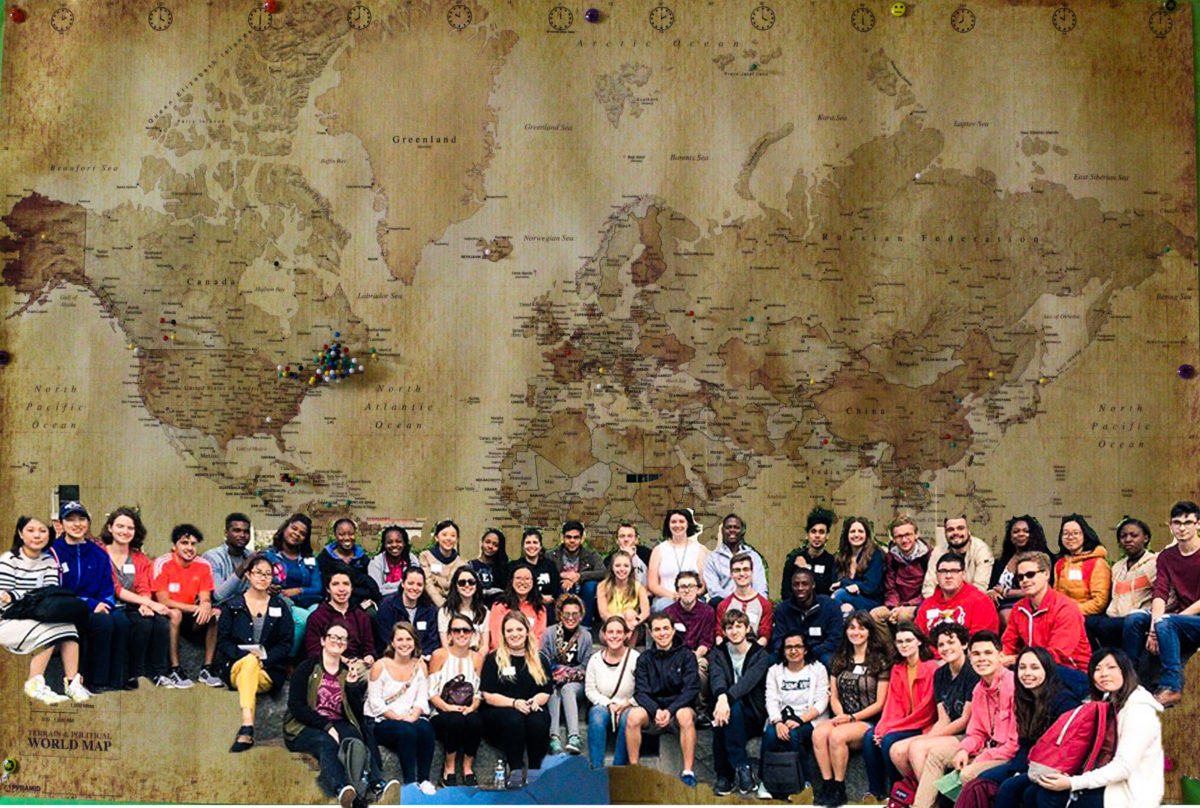

St. Thomas University is starting the new school year with a record-high number of first year international students on campus.
STU had approximately 40 new international students for the 2016-17 academic year, according to Scott Duguay, associate vice-president of enrolment management. The figures are subject to change, as official enrolment figures will be released on Oct. 1.
Still, Duguay expects the first-year class to be the biggest international group STU has ever had.
“The largest [international] class STU has ever had is 60 students, and we’re going to be well above that, probably in the ballpark of 70, 80 students,” he said.
He said this year’s class contains over 50 countries, including nations as far away as Ethiopia, Kosovo, France, Italy and Kazakhstan.
“We’re seeing a really, really nice student mix there, which is quite exciting for the campus community,” Duguay said.
The top nations represented at STU are the U.S., Jamaica, Honduras, Ecuador and a number of Asian countries, including Vietnam and Bangladesh.
The increase in U.S. students at STU follows a nationwide trend in post-secondary education interest from the States.
Universities across Canada saw a significant spike in U.S. applicants and web traffic following the election of President Donald Trump in November, CBC reported.
Duguay said it’s hard to attribute the increase in U.S. students at STU solely to the political situation south of the border. The university’s admissions department has been focusing on U.S. students for over five years now, he said.
“I’m sure that the political climate there has affected a few students, but I think I’d be quicker to attribute it to the work that we’ve done over the last several years,” Duguay said.
Recruiters have spent a lot of time in the U.S., and the university also joined the Common Application, a website frequently used by American post-secondary schools for the application process.
Duguay said the main reason STU recruits abroad is due to the declining population in Atlantic Canada. The efforts are necessary to keep enrolment at a healthy level.
Faith Rouillard, a first-year student from Augusta, Maine, first heard about STU when the university gave her a high school book award.
After coming to Canada for the first time to see the campus, Rouillard said she was sold.
“I just felt at home even though I had never been here before,” she said.
The small community, the charm of Fredericton and the ability to have a close relationship with professors were draws for Rouillard — but not the only factor when she finalized her acceptance just months after the election.
Rouillard describes herself as someone who is not “big on politics.” Despite that perspective, the U.S. political environment was enough to be a small factor in the decision to look north.
“Just the negativity itself was definitely a selling point for me I would say, not necessarily who we elected, but the negativity that our country presents,” she said.
Julia Howe, a first-year student from Dedham, Maine, felt similar draws to consider a Canadian university. She discovered STU when recruiters came to her area.
“I’d still go to school in the U.S. if I was financially able to, but with everything that’s been going on, it’s kind of good to get away,” Howe said of the political situation.
“I do want to be a person who fights for other people’s rights, and I feel like getting an outside perspective will really help with that, to see how other countries see the States right now, and what they think needs to be done.”
African-American student Arthur Reece said the political climate was definitely on his mind when he decided to transfer to STU from a junior college in Nebraska.
The Houston, Texas native heard about the school from a friend at the University of Toronto.
He considered the post-election political and social climate a major factor in his decision to leave the country.
“That just made me think deeper about everything. Do I really want to be around in the area where, if I go somewhere, I could just get stereotyped by the colour of my skin?” said Reece.
He said the atmosphere, which he described as being full of judgement and prejudice, made the U.S. an environment he didn’t want to be a part of.
“I just didn’t want to be a part of all the negativity. I can do what I can to try and tone it down, but I’m only one person,” Reece said.
“It’ll take the whole country one by one to come together as a whole.”
